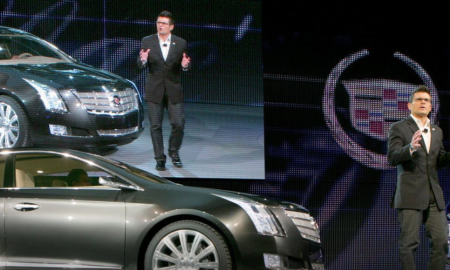
Are Subsidized Company Cars Blocking EV Growth in Germany?

Germany’s subsidized company car policy, where companies receive tax benefits to purchase vehicles, is significantly impacting the adoption of electric vehicles (EVs). Currently, a vast majority of company cars run on internal combustion engines, prolonging reliance on fossil fuels and slowing the shift to sustainable transportation. Given that company cars dominate business fleets, the country’s transportation sector faces challenges in reducing emissions.
The Prevalence of Company Cars
In Germany, two out of every three new cars registered in recent years were bought by businesses. Company cars used both for business and private purposes, often have higher fuel consumption and emissions due to increased mileage. Since companies cover fuel costs, employees typically drive these cars more frequently than private owners. Consequently, company cars contribute three-quarters of emissions from newly registered cars, making their environmental impact considerable.

Esmihel Muhammad | Pexels | In Germany, two out of every three new cars registered in recent years were bought by businesses.
Subsidies and Their Environmental Costs
The German government offers subsidies that favor premium vehicles, including fossil-fuel-powered company cars. These subsidies, amounting to €13.7 billion annually, are largely directed toward fossil-fuel cars, keeping them in circulation longer. The higher the purchase price, the greater the tax benefit, which incentivizes companies to purchase expensive vehicles, often heavy SUVs. This has led to a situation where one in three company cars in Germany is an SUV, a vehicle type known for its high emissions.
The Slow Adoption of EVs in Company Fleets
Despite Germany’s environmental goals, only 12% of new company car registrations in the first half of 2024 were fully electric. Some corporations are taking steps to promote EVs in their fleets, but progress remains limited. Deutsche Telekom, for instance, now requires all new company cars to be electric. However, such initiatives are rare, with companies like BASF and SAP maintaining a mix of hybrid and combustion-engine cars in their fleets.
While hybrid vehicles were intended to bridge the gap to full electrification, their environmental impact is debated. Many hybrids are rarely charged, running primarily on fossil fuel, which offsets their intended carbon savings. Without strong incentives to charge them, these vehicles end up having a heavier carbon footprint.
The Auto Industry’s Mixed Approach
Germany’s automotive industry stands to benefit from a shift toward EVs in company car fleets, as nearly 70% of their sales are to corporate clients. Therefore, major automakers like BMW and Volkswagen advocate for stronger electrification incentives. Yet, even among German carmakers, the commitment to fully transition company cars to electric remains limited. A recent report noted that only a third of BMW’s company cars are currently electric, highlighting the lag in adoption.
Subsidy Inequality and Potential Solutions
Subsidies for company cars largely benefit Germany’s top earners. According to the World Wildlife Fund, most company cars are used by employees with annual incomes above €80,000, raising questions about subsidy equity. Environmental advocates propose taxing vehicles based on CO2 emissions and promoting smaller EVs to address this. Additionally, providing benefits for sustainable alternatives, such as company bicycles and public transport passes, could ease both traffic congestion and parking shortages in German cities.
Challenges to the German Government’s Goals
Germany aims for net-zero carbon emissions in transportation by 2045. However, the continuation of subsidies for fossil-fuel-powered company cars conflicts with these goals. In 2023, EV subsidies for private individuals were scrapped, with Transport Minister Volker Wissing asserting that the EV market should stand independently. However, subsidies for corporate fossil-fuel cars remained untouched.
More inAuto News
-
`
How the New EBT Auto Insurance Discount Guide Helps Low-Income Drivers Save Money
With grocery prices, gas, and utility bills climbing, many families are struggling to make their paychecks last. For those already watching...
October 9, 2025 -
`
Why Truck Manufacturers Are Shifting from Diesel to Hydrogen
Hydrogen is emerging as a promising alternative for trucks, offering both high energy efficiency and longer driving ranges. Ashok Leyland, for...
October 2, 2025 -
`
Ohio Driver’s License Laws Are Changing for Young Adults in 2025
Getting a driver’s license is a milestone, but for young adults in Ohio, the process is about to become more structured....
September 25, 2025 -
`
Why 1 in 4 Americans Trust RFK Jr. for Medical Advice
A recent poll reveals that a significant portion of Americans remain cautious about trusting Health Secretary Robert F. Kennedy Jr.’s medical...
September 19, 2025 -
`
Why Tariffs Could Make Car Insurance Rates Worse
Car insurance costs in the U.S. are climbing, and new tariffs could make the problem worse. Shoppers are already feeling the...
September 11, 2025 -
`
The Automotive Reckoning Has Arrived – Are Companies Ready?
In early 2022, Stellantis CEO Carlos Tavares stood on stage in Amsterdam with a confident blueprint for the future. Fresh off...
September 5, 2025 -
`
Self-Driving Cars Will “Drastically” Change Automotive Design, GM Says
The automotive industry is entering a new chapter that goes far beyond electrification. While EVs dominate today’s headlines, the rise of...
August 29, 2025 -
`
Child Wearing Swimsuit Outside Sparks CPS Visit — The Full Story!
Children playing outside is a familiar and often joyful sight. Yet, sometimes, an innocent choice—like a child wearing a swimsuit outdoors—can...
August 22, 2025 -
`
Florida Auto Insurance Rates Finally Drop. But for How Long?
After years of rising premiums, Florida drivers are finally seeing lower auto insurance rates on the horizon. For 2025, the state’s...
August 15, 2025
















You must be logged in to post a comment Login